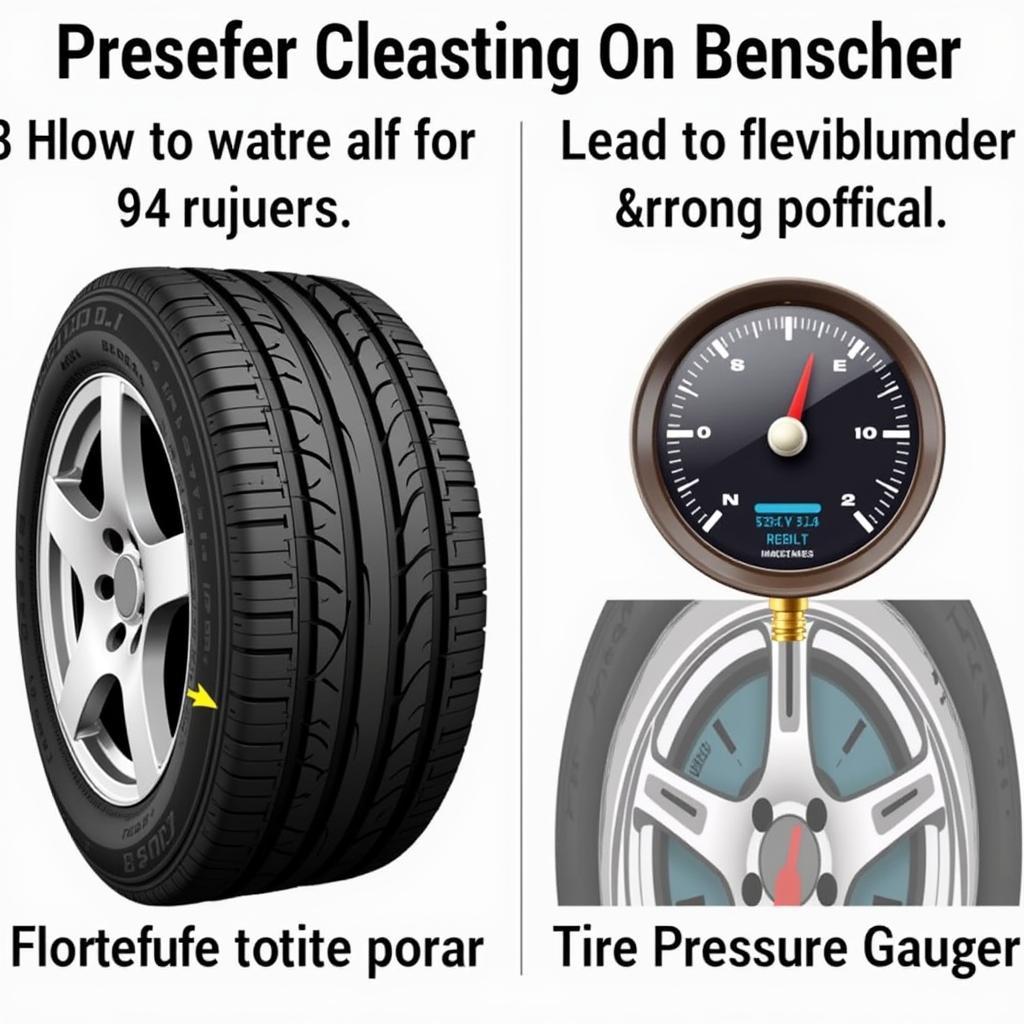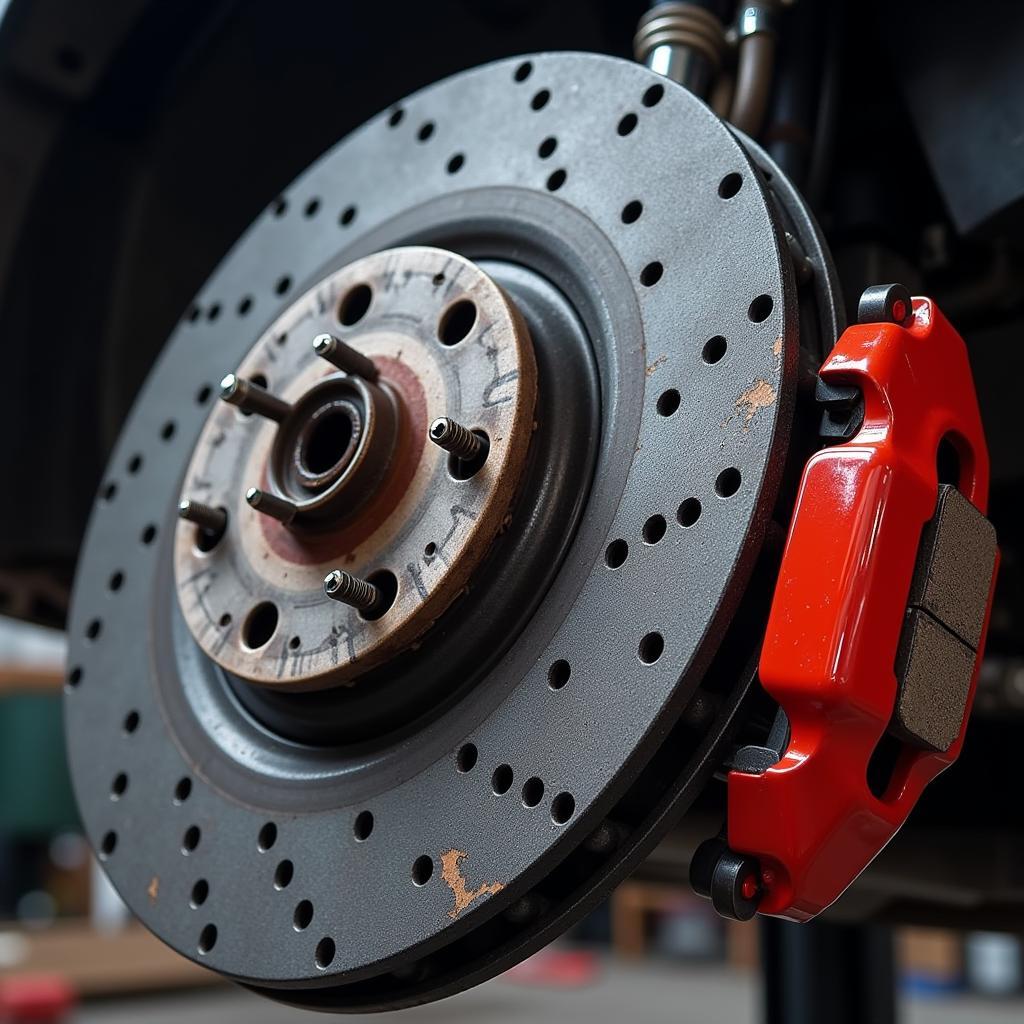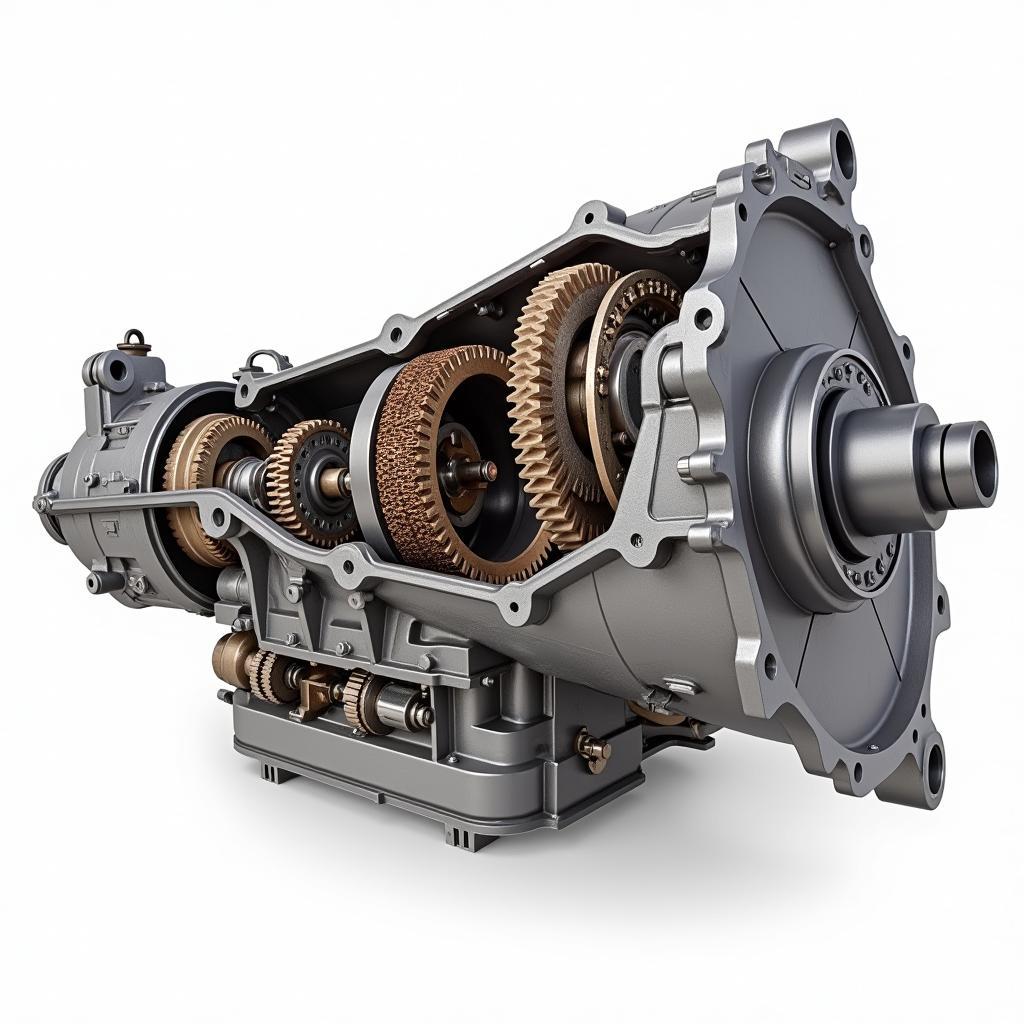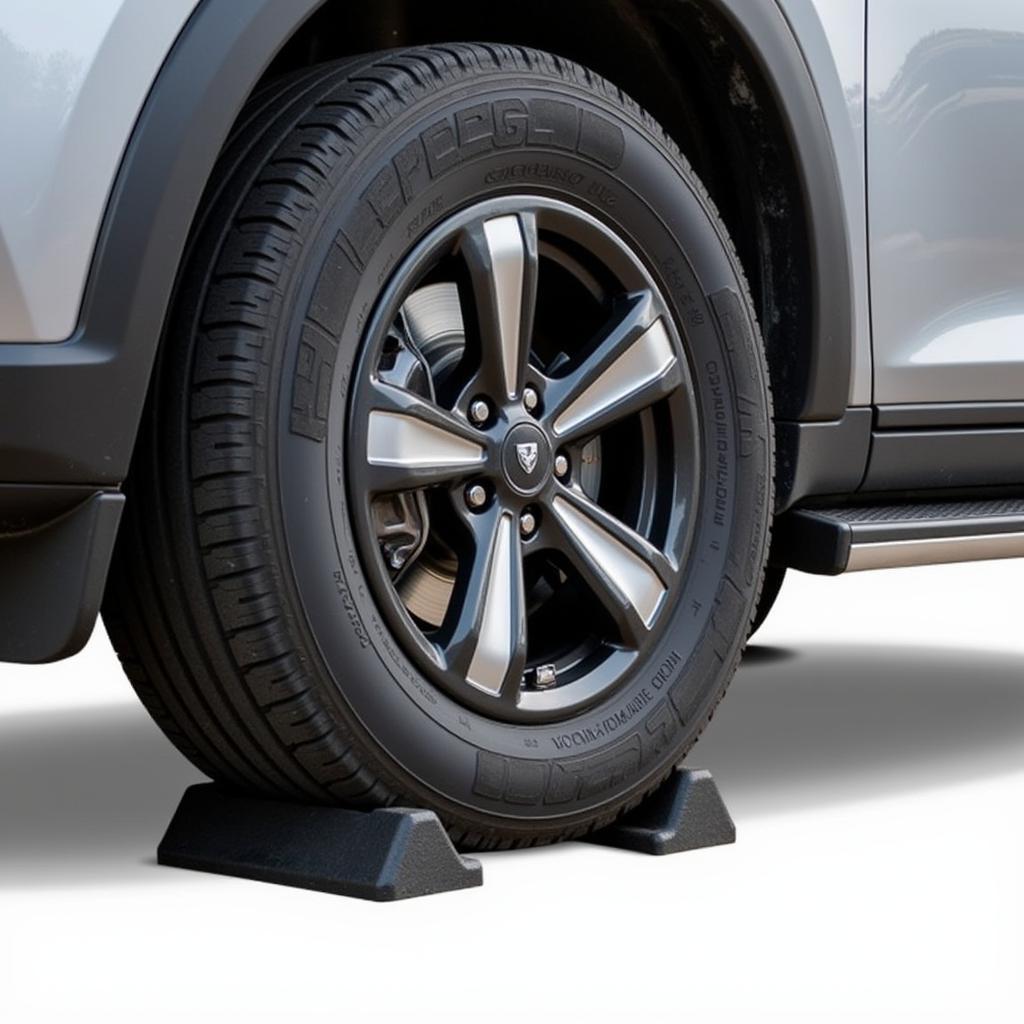If your car shakes, it can be a nerve-wracking experience. Understanding why your car is shaking is crucial for both your safety and the longevity of your vehicle. This article will delve into the common causes of car shaking, helping you diagnose the problem and determine the best course of action.
A shaking car can stem from various issues, from simple tire problems to more complex engine or transmission malfunctions. Identifying the source of the vibration is the first step toward a solution. Sometimes the fix is as easy as a tire rotation; other times, it requires more extensive repairs. Let’s examine the most frequent culprits behind this unsettling driving experience.
Common Reasons Why Your Car Shakes
Tire Issues: The Usual Suspects
Often, the simplest explanation for car shaking is a problem with your tires. Uneven tire wear, low tire pressure, or a damaged tire can all cause vibrations. A flat spot, caused by hard braking or a long period of inactivity, can also be the culprit. Regular tire rotations and pressure checks are essential preventative maintenance. For further information on related car issues, you can check out car problems.
 Tire Wear Causing Car Shake
Tire Wear Causing Car Shake
Wheel and Axle Problems: Going Deeper
Beyond tires, issues with your wheels or axles can also cause shaking. A bent wheel, a loose lug nut, or a damaged axle can all contribute to vibrations, particularly at higher speeds. If you suspect an axle issue, learn more about how to know when problem with car axle.
Brake Problems: Feeling the Shakes When Stopping
A pulsating brake pedal or shaking when braking often points to warped brake rotors. The rotors are metal discs that the brake pads clamp down on to stop the car. Over time, these rotors can become uneven, causing vibrations during braking.
 Warped Brake Rotors and Car Vibrations
Warped Brake Rotors and Car Vibrations
Engine Problems: A More Serious Concern
A shaking car, particularly when idling or accelerating, could indicate an engine problem. Issues like misfiring spark plugs, clogged fuel injectors, or a failing engine mount can all cause the engine to vibrate excessively. This is often accompanied by reduced performance and unusual engine noises. You can find more about spark plugs issues at car sparks plugs problems.
Transmission Problems: Shifting Troubles
A shaking car, especially when shifting gears or accelerating, may suggest a problem with the transmission. Low transmission fluid, a worn-out clutch, or internal damage can cause vibrations and difficulty shifting.
 Worn Transmission Components and Car Shaking
Worn Transmission Components and Car Shaking
Diagnosing the Shake: What to Look For
Identifying when the shaking occurs can help pinpoint the problem. Does it happen at high speeds? When braking? When idling? Paying attention to these details can significantly narrow down the potential causes. If you’re confident there’s no underlying mechanical issue, check there is no any problem with the car for reassurance.
Seeking Professional Help: When to Call a Mechanic
While some causes of car shaking are relatively simple to fix, others require professional attention. If you’re unsure of the cause or uncomfortable tackling the repair yourself, it’s always best to consult a qualified mechanic.
Conclusion: A Smooth Ride Ahead
Addressing car shaking promptly is essential for a safe and comfortable driving experience. By understanding the potential causes and taking appropriate action, you can ensure a smooth ride and keep your vehicle in top condition. If you need assistance with any car problem, feel free to contact us at AutoTipPro. You can reach us at +1 (641) 206-8880 or visit our office at 500 N St Mary’s St, San Antonio, TX 78205, United States. We are always happy to help.
FAQs: Your Car Shaking Questions Answered
-
Can low tire pressure cause my car to shake? Yes, underinflated tires can definitely cause vibrations, especially at higher speeds.
-
How often should I rotate my tires? Generally, every 5,000 to 8,000 miles is recommended.
-
Is it safe to drive with a shaking car? It depends on the severity and cause. A slight vibration might be tolerable, but significant shaking could indicate a serious problem requiring immediate attention. You might want to check out google car problem for specific issues.
-
How much does it cost to fix a shaking car? The cost varies widely depending on the cause. A simple tire rotation might be inexpensive, while a major engine or transmission repair could be costly.
-
What if my car shakes only when braking? This often points to warped brake rotors.
-
Can a wheel alignment fix car shaking? Yes, a misaligned wheel can cause vibrations, and an alignment can correct the issue.
-
How can I prevent my car from shaking in the future? Regular maintenance, including tire rotations, wheel alignments, brake inspections, and fluid checks, can help prevent many of the common causes of car shaking.







Leave a Reply